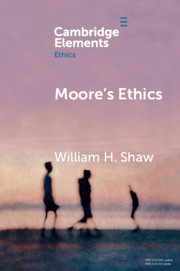Element contents
Moore's Ethics
Published online by Cambridge University Press: 29 August 2020
Summary
- Type
- Element
- Information
- Series: Elements in EthicsOnline ISBN: 9781108581295Publisher: Cambridge University PressPrint publication: 24 September 2020
References
- 14
- Cited by



